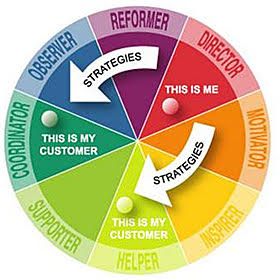Reform To Achieve Maximum Results
The last of Jung’s “8 Types” is the Reformer. The Reformer is said to be an abstract thinker who is motivated by results. The motivation can come off as being ultra-competitive to co-workers. Moreover, this same motivation is sometimes offset by their hunger for perfection. Hey, no one is perfect, right? Moreover, this “offset” lets us know that the Reformer is human which makes us all, who do not have this pretty awesome innate ability, feel just a little bit better about ourselves.
With Great Power, Comes Great Responsibility
No matter the type of company you run, there is for sure a natural Reformer there helping to do their part. Jung further describes the Reformer as be quick minded or having great speed of thought. However, when you can think of sound solutions faster than most, this can be counterbalanced by the need to explore ALL possible outcomes as a result of this new thought or solution. Even though the Reformer can show glimpse of brilliance, they struggle as it takes them a lot of time to finally settle on one of their excellent business solutions. So, if you need something like “yesterday” you may not want to seek their help if time is of the essence.
Let A Dog Roam And They’ll Find Their Way Home
A manager who wants to better help this employee reach their full potential, and at the same time, assist the team and company, needs to give the Reformer space to roam. No, not space to roam the hallways at work. Freedom and space to think and do their jobs. This personality type does not need any hand-holding at all; just the occasional push when a deadline is fast approaching.
We Are All Wrong At Some Point In Time
If a Reformer gets the freedom to explore all situations and possibilities, they can be great at problem solving, which, they highly enjoy. Like normal people when they discover that they are actually incorrect on something they thought otherwise, the Reformer can get upset. Not only will they sometimes get upset, but they will also “canvass” their own support network (close co-workers) for support long after they have been unequivocally proven wrong. Or a final decision was already made.
Here Are Some Classic Reformer Personality Traits to Look For:
- Inner drive
- Deeper thinker
- Attention to the job at hand
- Strives for excellence
- Influences other in a positive way
- High self-criticism
- If under pressure, can be overly critical, impatient and a negative thinker
- Tolerant and understanding of “work code.”
Every office in America needs a Reformer on their team for total “togetherness.” If you would like further help in identifying yourself or someone you know who may be a Reformer, schedule me, Scott Schwefel, as your keynote speaker. I will come to your group and address the differences in personalities in a truthful, fun, and easy-to-understand way. Follow me on Facebook, LinkedIn, and Twitter to share my blogs with the color energies you work with!











